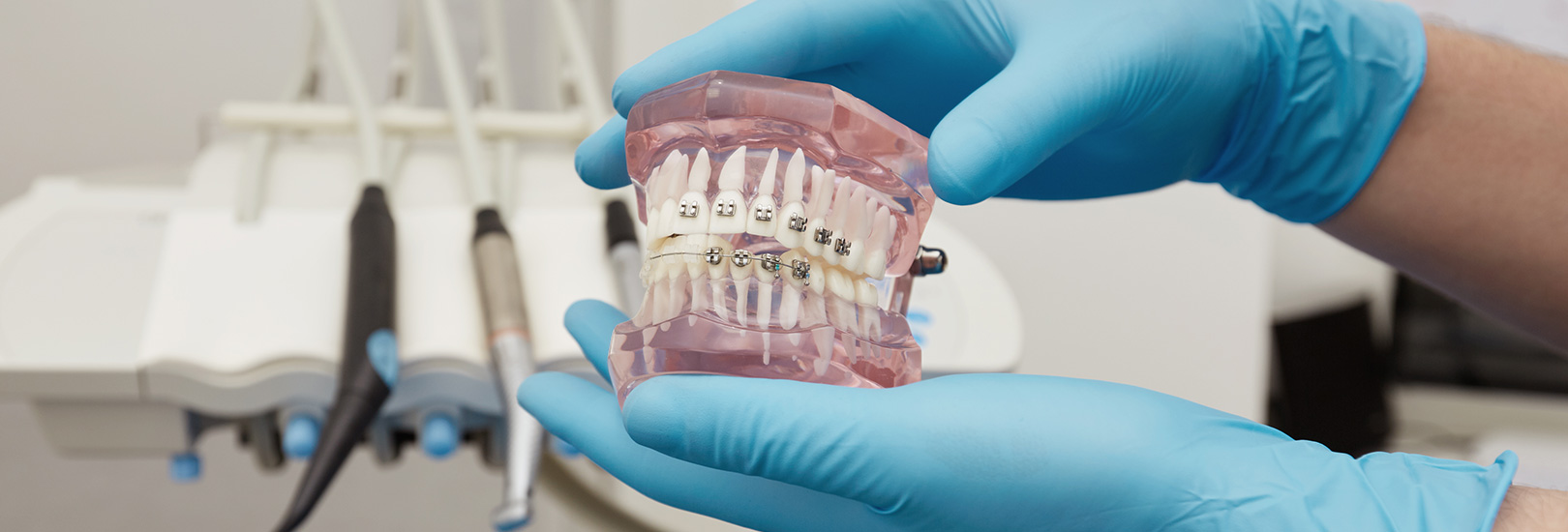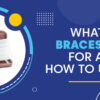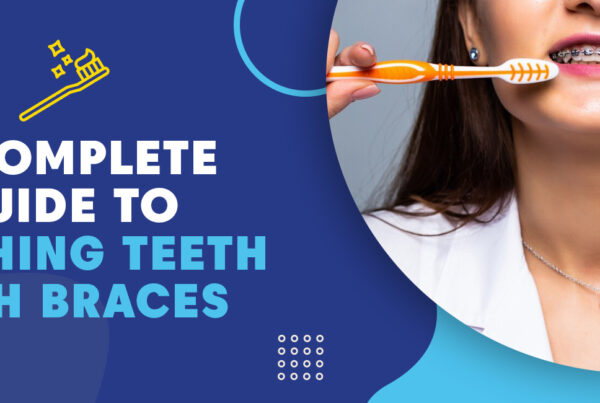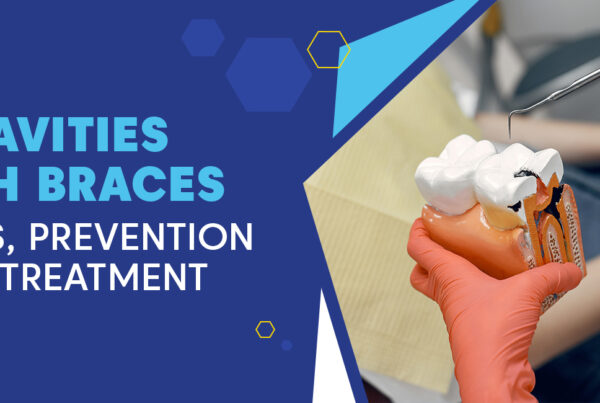- Not Sure If You Still Can Get Braces With Metal Allergies
- What Is A Metal Allergy
- Symptoms Of Metal Allergy
- Types Of Metal Allergies
- Alternatives To Traditional Metal Braces
- Clear Aligners: An Invisible Metal-Free Choice
- Lingual Braces: Braces Behind Your Teeth
- Disclose Metal Allergy To Your Orthodontist
- Tips For People With Metal Allergies Considering Braces
- Brace Yourself With Orthodontic Experts: Metal Allergies No Longer A Barrier For Orthodontic Treatment
Not Sure If You Still Can Get Braces With Metal Allergies
Are you among the many people told they can’t get braces due to a metal allergy? While metal allergies are a legitimate concern, they no longer have to be a barrier to orthodontic treatment. With advancements in technology and new materials available, there are now options for people with metal sensitivities.
The key is to find the right type of braces that helps minimize the risks of potential reactions and provides the necessary care to protect your teeth and gums. And there are several options available today that are both safe and effective.
So why not go ahead and make that appointment with your dentist? This blog will tell you precisely what to consider when choosing braces if you’re allergic to metals.
What is a metal allergy
Metal allergies can cause a number of uncomfortable and sometimes dangerous reactions, so it’s important to know if your metal allergy will prevent you from getting braces.
But what is a metal allergy? It’s essentially an overreaction of your body’s immune system to certain metals or alloys. Taking the time to properly research the material in your braces is important when you have a metal allergy, so you can ensure you experience the most comfortable orthodontic treatment possible!
Symptoms of metal allergy
It’s possible to have an allergic reaction to the metals used in traditional braces. Usually, the metals used are nickel, copper, chromium and cobalt. These can cause skin rashes and irritation.
Common symptoms of a metal allergy include:
- Redness and swelling of the skin
- Itching or burning sensation
- Blisters, hives or dry patches on the skin
- Coughing, sneezing or trouble breathing if inhaled
If you suspect that you may have an allergy to metals used in braces, it’s best to consult with your orthodontist. They can help determine whether a metal allergy is causing your discomfort and recommend alternative treatment options.
Types of Metal Allergies
If you have a metal allergy, you may wonder if you can still get braces. Good news! Modern technology means that there are different types of braces available so that you can still experience the smile of your dreams. Let’s take a look at some of the options available to those who suffer from a metal allergy and what to consider when choosing braces.
Nickel Allergy
Many people suffer from a nickel allergy, which usually results in lips and mouth sores. If you think that you may be experiencing this type of allergy, it is important to choose braces without nickel or any other metals such as chrome or stainless steel. Fortunately, there are different options available such as ceramic braces, which are made from acrylic and polycarbonate material and lack any allergen in them.
Copper Allergy
Another type of metal allergy is copper. This type of reaction generally presents itself as blistering around the mouth and lips, although it can also cause itching on other areas of the body where copper-based jewelry has been worn for prolonged periods. If this is a concern for you then ceramic braces are also an option here as they do not contain any copper within them.
Titanium Allergy
Titanium allergies occur less frequently than nickel and copper allergies but they can still be just as uncomfortable if not treated properly. Those with titanium allergies should look for orthodontic devices made with non-magnetic materials such as ceramic or monocrystalline sapphire brackets which are naturally hypoallergenic and do not contain any traces of titanium alloy within them.
Alternatives to Traditional Metal Braces
If you have metal allergies, don’t worry! You might think that Traditional Metal Braces are your only option, but there are actually plenty of alternatives to choose from.
Ceramic Braces: A Metal-Free Option
The most popular orthodontic treatment for those with metal allergies is ceramic or plastic braces. These options are just as effective as Traditional Metal Braces, and virtually unnoticeable.
Esthetics
Ceramic braces look a lot more inconspicuous than Traditional Metal Braces, as the brackets blend in with the natural color of your teeth. While the elastic ties on ceramic braces are usually white or tooth-colored, they are not as noticeable as metal ties. This is especially helpful for teenagers and adults who feel self-conscious about wearing Traditional Metal Braces.
Less irritation
Ceramic brackets often feature smooth edges and rounded corners, which can be much more gentle on your mouth than traditional metal brackets with sharp edges. So if you’re prone to mouth sores or irritation from traditional bracket designs, ceramic brackets can offer some relief while you’re getting your teeth straightened out.
Easier cleaning
Because ceramic brackets are less bulky than traditional ones, it’s easier to brush and floss your teeth when wearing them — and that’s important for keeping up with good oral hygiene habits throughout your treatment. And since ceramic brackets blend in with the natural color of your teeth, you don’t have to worry about discoloration from food particles building up on them over time either!
Clear Aligners: An Invisible Metal-Free Choice
Clear Aligners are a type of braces that are free from metal and designed to be virtually invisible. These custom-made Clear Aligners combine the power of technology and modern orthodontic techniques to help you achieve perfect teeth without any metal wires or brackets needed.
So how do they work? Here’s a quick overview:
Imaging Software
Clear Aligners use advanced digital imaging and computer graphic software to create 3D images of your mouth, so that an orthodontist knows exactly how your teeth should move in order to get perfect alignment.
Custom-made aligners are manufactured based on these 3D images, each one containing tiny adjustments that gradually move your teeth until your ideal smile is achieved.
Therapy & Maintenance
You will receive a set of several aligners for each stage of your treatment; you wear each set for about two weeks before moving onto the next one. Every 4-6 weeks, check in with your dentist to ensure that your treatment is progressing as planned. Most people can expect their treatment time with Clear Aligners takes about half as long as Traditional Metal Braces.
With Clear Aligner therapy, you won’t need to worry about irritating metal pieces rubbing against the inside of your mouth or causing any kind of allergic reaction – making it the perfect solution for those with metal allergies who want perfect teeth without all the hassle!
Lingual Braces: Braces Behind Your Teeth
You might not know this, but if you have a metal allergy and want to get metal braces, you can still get orthodontic treatment. The trick is to get Lingual Braces, which are attached to the back of your teeth instead of the front.
So how do Lingual Braces work?
Customized option
Your orthodontist will take impressions of your teeth, and then use these impressions to make a custom-made set of brackets that are customized for your mouth only. Each bracket is designed to fit your mouth perfectly, which means it can’t irritate your gums or even cause discomfort.
Attach with a special adhesive
The brackets are then attached to the back of your teeth using a special adhesive that won’t cause any irritation or discomfort. This adhesive also helps ensure that the brackets stay in place without slipping off or shifting around.
Metal-free materials used
Lingual Braces are made from metal-free materials so they won’t cause an allergic reaction. They are made from ceramic or plastics, which means you won’t have to worry about any potential allergies. Lingual Braces also don’t show when you smile, so no one will be able to tell that you’re wearing braces — making them the perfect option for people with metal allergies.
Disclose metal allergy to your orthodontist
If you have a metal allergy, it’s important to tell your orthodontist about it before getting braces. This is because some metals used in Traditional Metal Braces are high allergen elements, such as nickel and stainless steel. However, there are now braces available that are made from hypoallergenic materials and designed specifically for people with metal allergies.
Your orthodontist might suggest:
- Ceramic braces, which use an assembly of ceramic brackets and wires that don’t contain any nickel or other metals
- Gold or plastic versions of the traditional wire and bracket system which contain fewer allergens than the metal versions
- Clear removable aligners that don’t involve the use of any metals at all
It’s important to discuss your metal allergies with your orthodontist so they can recommend the best form of treatment for you. That way, you can enjoy having straight teeth without any discomfort or adverse reactions to your braces.
Tips for people with metal allergies considering braces
If you suffer from metal allergies and are considering braces, here are a few tips you may want to consider:
Talk to Your Orthodontist First
Before taking any form of action, it is important to consult your orthodontist. They will be able to provide valuable insight and advice specific to your situation. Additionally, there are certain instruments that they can use to assess your allergies. Once they have gathered all the necessary information, they will be able to come up with a solution that works best for you.
Choose Braces Made with Non-Metallic Materials
If you have decided on braces and suffer from metal allergies, make sure that you choose braces made with non-metallic materials such as ceramic or plastic. These materials do not contain nickel or other metal-based materials which could cause irritation. Additionally, these braces typically require fewer adjustments and are much more comfortable than their metallic counterparts.
Consider Other Alternatives
If you have tried Traditional Metal Braces and still struggle with metal allergies, there are other solutions available. For example, some orthodontists offer Clear Aligners – these use soft plastic material which is much more comfortable for those who suffer from metal allergies. In addition, retainers are another option which provides stability without the irritation caused by metal braces.
Ultimately, it is important to take your time when deciding on the best course of action for yourself if you have metal allergies. By talking to your orthodontist and weighing all of your options carefully – including any non-metallic alternatives – you will be able to find the right solution for you.
Brace Yourself with Orthodontic Experts: Metal Allergies No Longer a Barrier for Orthodontic Treatment
With the introduction of new and innovative options such as ceramic braces, Lingual Braces and Clear Aligners, our patients can now receive treatment without any adverse allergic reactions. This breakthrough in orthodontic treatment is a game changer for those who were previously not able to receive treatment due to allergic responses to metal braces. By providing alternative options, Orthodontic Experts is committed to ensuring that every patient can achieve a beautiful and healthy smile. So what are you waiting for? Call us today to book a no-cost consultation with our top orthodontists near you!










